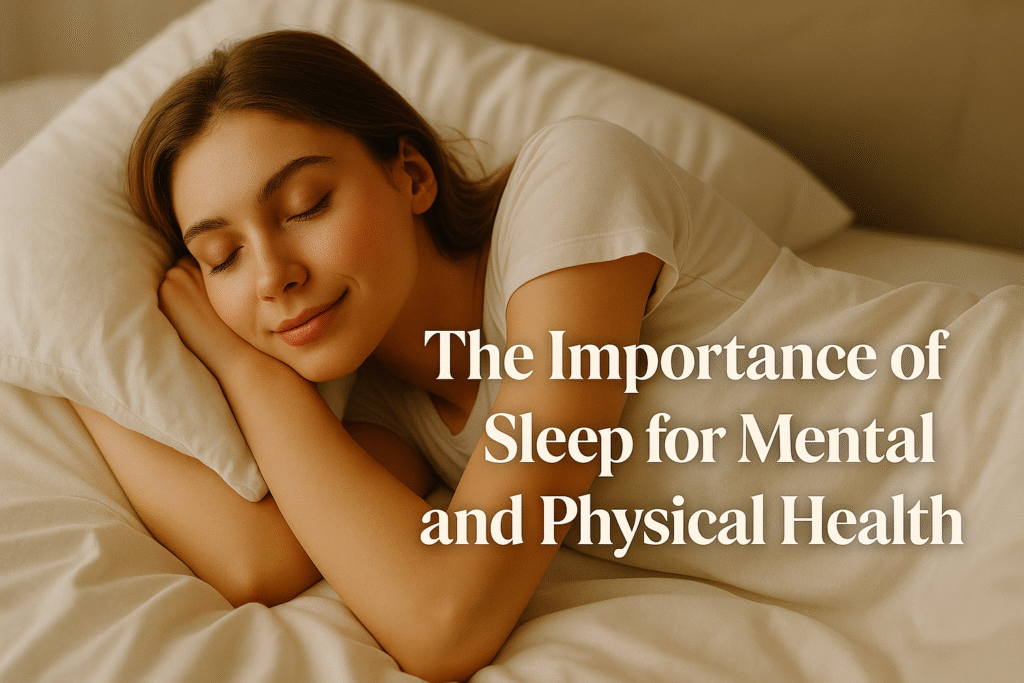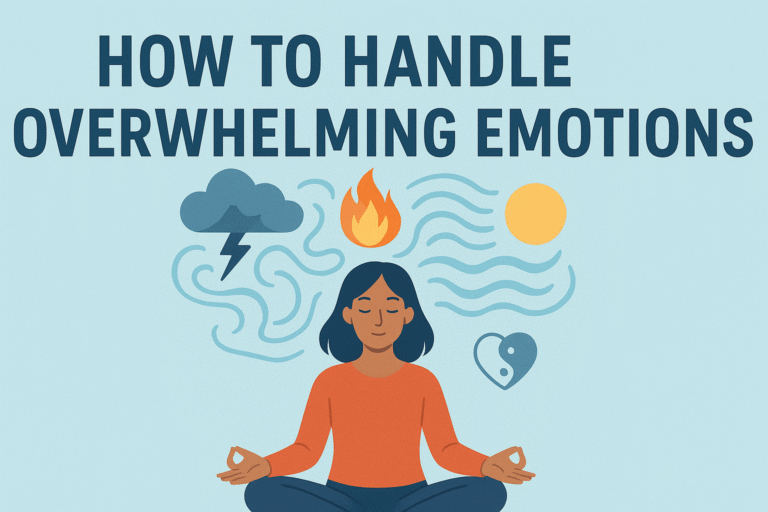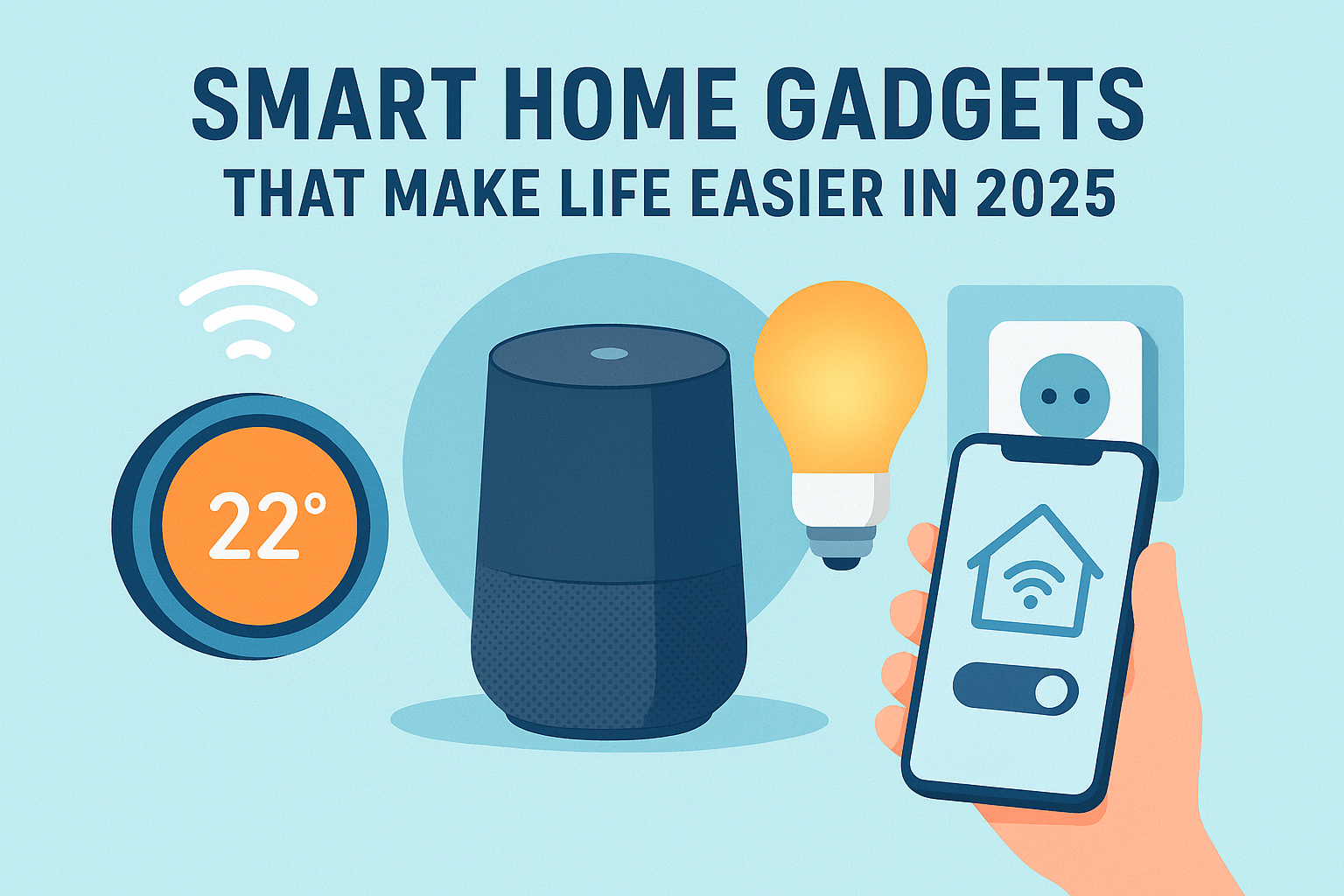
Sleep isn’t just rest—it’s how your body and brain recharge. But in today’s fast-moving world, you’re probably tempted to cut sleep short. Maybe it’s to finish work, scroll social media, or squeeze in some late-night relaxation. The problem? Importance of Sleep, it doesn’t just leave you tired. It affects your mood, memory, immune system, and even long-term health. Getting enough quality sleep every night isn’t optional—it’s essential. This guide breaks down why sleep is so important, what can go wrong when you don’t get enough, and how to build better sleep habits.
Why Sleep Matters
When you’re asleep, your body isn’t shutting down—it’s getting to work. Your muscles and tissues repair, your brain processes emotions and memories, and your immune system builds strength. Sleep helps regulate hormones that affect everything from hunger to stress levels. Without it, your body falls out of rhythm. You may feel foggy, moody, or physically run-down. Over time, sleep loss increases the risk of serious health problems like heart disease, obesity, and depression. Making sleep a priority is one of the best things you can do for your body and mind.
How Sleep Affects Mental Health
Mood and Emotions
You’ve probably noticed how a bad night’s sleep can mess with your mood. You might feel cranky, anxious, or just off. That’s because sleep helps regulate your emotions. When you don’t get enough, your brain becomes more reactive, and it’s harder to stay calm and focused. You may overreact to small stressors or struggle to cope with everyday challenges. Regular, quality sleep helps you stay balanced, boosts your patience, and makes it easier to handle life’s ups and downs.
Focus and Memory
Sleep is like hitting the “save” button for your brain. When you’re well-rested, you’re better at concentrating, solving problems, and remembering new information. But if you’re sleep-deprived, your focus slips, your memory weakens, and even simple decisions feel harder. Whether you’re studying, working, or just managing your day, sleep gives your brain the power to perform at its best. Don’t underestimate how much better you’ll think and feel after a solid night of rest.
Mental Illness
Sleep and mental health are deeply connected. If you have trouble sleeping, it can worsen anxiety, depression, and other mental health conditions. On the flip side, those same conditions can make it harder to sleep well. It’s a tough cycle, but improving your sleep can make a real difference. Even small changes to your sleep routine can help you feel more emotionally stable and mentally clear. It’s not a cure-all, but it’s a big piece of the puzzle.
How Sleep Impacts Physical Health
Immunity
Your immune system needs sleep to stay strong. While you’re sleeping, your body makes proteins that fight off illness and reduce inflammation. If you don’t get enough rest, your defenses drop, and you’re more likely to get sick. Whether it’s the flu, a cold, or just feeling run down, your chances go up when you’re sleep-deprived. Prioritize rest, especially when you’re feeling under the weather—it gives your body the tools to heal faster.
Weight and Metabolism
Sleep plays a big role in your metabolism. It affects hormones that control hunger, which is why you might crave junk food after a bad night’s sleep. When you’re tired, your body produces more ghrelin (which makes you hungry) and less leptin (which tells you you’re full). This imbalance can lead to overeating and weight gain. Sleep also helps regulate how your body uses insulin, which is important for managing blood sugar. Want to stay fit and energized? Don’t skip your sleep.
Heart Health
Your heart needs downtime, too. Good sleep helps keep your blood pressure steady and reduces inflammation in your body. If you don’t sleep well, your risk of heart problems like high blood pressure, stroke, and heart disease goes up. Even one bad night can raise your blood pressure the next day. Long-term sleep loss puts a lot of strain on your cardiovascular system. Protect your heart by making sleep part of your daily wellness plan.
Blood Sugar Regulation
Sleep also impacts how your body manages sugar. If you’re not getting enough, your insulin function can become less effective, leading to higher blood sugar levels. Over time, this can raise your risk of type 2 diabetes. Even a few nights of poor sleep can throw off your body’s ability to handle glucose. If you’re trying to manage or prevent diabetes, getting consistent, high-quality sleep should be a top priority.
Consequences of Sleep Deprivation
When you miss sleep, you feel it—low energy, brain fog, mood swings, and trouble concentrating. But the long-term consequences are even more serious. Chronic sleep loss increases your chances of developing serious illnesses like obesity, diabetes, heart disease, and even depression. Your immune system weakens, and your quality of life drops. You might find yourself less productive, less motivated, and more prone to stress. The worst part? You might not even realize how much better you could feel if you just got more rest.
How Much Sleep Do You Need?
You’ve probably heard the golden rule: aim for 7 to 9 hours of sleep a night. That’s a good target for most adults. Teenagers need a bit more—about 8 to 10 hours—and younger kids need even more than that. But it’s not just about quantity; quality matters, too. If you wake up a lot or sleep lightly, you might not be getting the restorative rest your body needs. Pay attention to how you feel in the morning. If you wake up tired, groggy, or unrested, your sleep could use some work.
How to Improve Sleep Quality
Keep a Consistent Sleep Schedule
Try to go to bed and wake up at the same time every day—even on weekends. This helps your body get into a rhythm so you feel sleepy at night and alert in the morning.
Create a Wind-Down Routine
Before bed, do something relaxing: read, stretch, journal, or take a warm shower. This helps signal to your body that it’s time to rest.
Limit Screen Time
Your phone and laptop give off blue light, which can make it harder to fall asleep. Try to unplug an hour before bed or use night mode to reduce blue light.
Watch What You Eat and Drink
Avoid caffeine, alcohol, and heavy meals close to bedtime. These can mess with your ability to fall asleep or stay asleep.
Make Your Bedroom Sleep-Friendly
Keep your room cool, quiet, and dark. Use blackout curtains, a white noise machine, or an eye mask if needed. A comfy mattress and pillow also help.
Get Regular Exercise
Daily movement helps you sleep better at night. Just avoid high-energy workouts too close to bedtime—they can keep you up.
Avoid Late Naps
Napping is okay, but keep it short—under 30 minutes—and don’t nap too late in the day. Otherwise, it might throw off your nighttime sleep.
When to See a Doctor
If you’re doing all the right things but still can’t sleep well, it might be time to talk to a doctor. Loud snoring, gasping during sleep, or always waking up tired could be signs of a sleep disorder like sleep apnea or insomnia. You don’t have to figure it out alone. A sleep specialist can help get to the root of the problem and find solutions that work for you. Don’t wait—your health is too important.
Final Thoughts
Sleep isn’t just something nice to have—it’s something you need. It fuels your body, clears your mind, and helps you handle stress. If you’ve been putting it off, now’s the time to treat it like the essential part of your wellness it truly is. Start by making small changes to your routine and give your body the rest it’s asking for. Better sleep means a better you—more focused, more energized, and more resilient every day.
Disclaimer: This article is for informational purposes only and is not intended as medical advice. Always consult a healthcare professional for sleep concerns.



